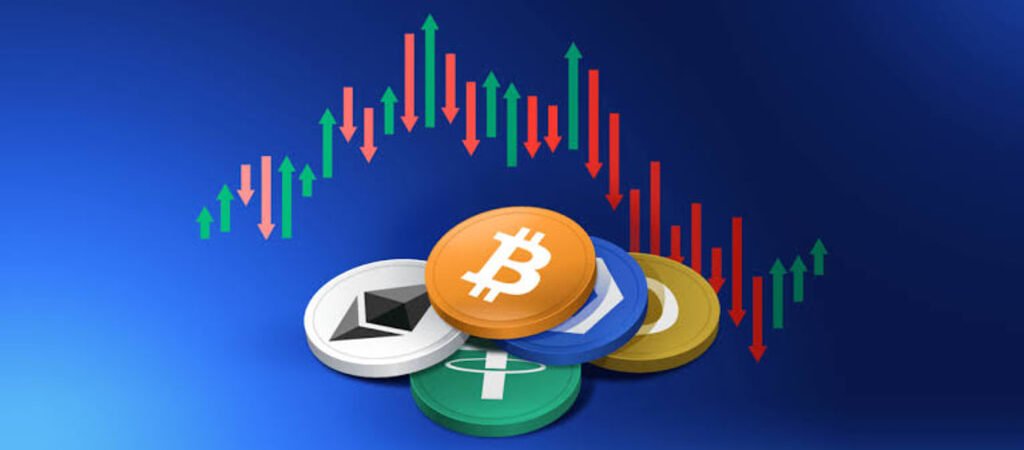Money isn’t what it used to be — and that’s a good thing. As we move into the mid-2020s, finance is becoming smarter, faster, and more transparent than ever before. Artificial intelligence, blockchain, and decentralised ecosystems are challenging the very structure of how we earn, save, and spend.
Let’s explore how these innovations are transforming our financial future — and what it means for you.
1. The Rise of AI-Powered Financial Systems
AI is no longer just crunching numbers; it’s managing money.
From chatbots that handle customer queries in seconds to AI-driven portfolio managers that analyse global trends in real-time, the role of artificial intelligence in finance is expanding beyond human capability.
Banks now use predictive models to assess credit risk with higher accuracy. AI algorithms can even detect fraud before it happens by recognising micro-patterns in transaction data — things no human eye could ever spot.
But the real revolution lies in personal finance automation. AI budgeting assistants analyse your income, spending patterns, and goals, then automatically allocate money towards investments, savings, and debt repayment. In short — AI is becoming your personal CFO.
2. Decentralisation: The People’s Bank
The old financial hierarchy — banks, brokers, intermediaries — is crumbling under the weight of decentralisation.
Blockchain-based finance (DeFi) gives people the ability to lend, borrow, invest, and transact directly, without any traditional gatekeepers.
Smart contracts ensure transparency and security, executing automatically when conditions are met. Decentralised exchanges (DEXs) allow peer-to-peer currency swaps with zero downtime and full traceability.
In 2025, decentralised finance isn’t a risky experiment — it’s a parallel financial universe. Millions are moving their assets into crypto-backed ecosystems, seeking freedom from outdated systems plagued by fees and delays.
3. Digital Currencies Redefine National Economies
Central Bank Digital Currencies (CBDCs) are reshaping the definition of “money.”
Over a dozen major economies are now piloting or launching their own CBDCs. These digital versions of fiat currency aim to make payments faster, reduce corruption, and create traceable money trails for governments.
However, there’s a balance to strike: transparency versus privacy. As every transaction becomes traceable, policymakers must design systems that protect citizens’ rights while ensuring accountability.
In this new landscape, crypto and CBDCs will coexist — one decentralised, the other government-backed — giving people a choice between freedom and structure.
4. Financial Literacy Meets Technology
In the future, being “rich” won’t mean much if you’re not financially intelligent.
Digital financial education is exploding. Platforms are merging gamification and AI tutoring to teach people how to invest, trade, and manage money. Imagine earning crypto rewards for completing financial literacy challenges — that’s already happening.
Financial empowerment is becoming universal. People who once lacked access to banking are now managing digital wallets and micro-investing through mobile apps. This democratisation of finance is perhaps the most significant cultural shift of the decade.
5. Green Finance and Ethical Investing
As the world faces climate urgency, money is becoming a moral statement.
Investors are demanding accountability. Companies are now judged not just by profits, but by ESG performance — how they treat the planet, people, and governance.
AI tools are being used to evaluate corporate sustainability reports, eliminating greenwashing and rewarding genuine eco-friendly initiatives. Ethical investing has moved from being “niche” to becoming the default expectation of younger investors.
In 2025, green portfolios outperform traditional ones not just ethically, but financially too. Conscious capitalism isn’t just the future — it’s already here.
6. The End of the 9-to-5 Economy
The gig economy is evolving into a micro-investment economy.
Instead of saving passively, individuals are building diversified income ecosystems: freelancing, investing in tokenised real estate, trading NFTs, or owning a share of digital assets.
Blockchain enables fractional ownership, meaning you can own a portion of a property in London, a piece of art in Paris, and part of a solar farm in Rajasthan — all from your smartphone.
The new wealth mindset isn’t about earning one salary. It’s about stacking multiple micro-revenue streams — all connected through technology.
7. A Future Built on Trustless Systems
The greatest irony of modern finance? It’s becoming “trustless.”
That doesn’t mean we trust less — it means we no longer need to.
Blockchain-based systems remove human error, corruption, and middlemen. Transactions are verified by code, not contracts. Data is immutable, not negotiable. This trustless nature of finance makes it both safer and fairer.
In this new reality, transparency replaces authority, and individuals take control of their financial destinies.
Final Thoughts
Finance in 2025 isn’t just about profits — it’s about empowerment.
We’re entering an era where AI manages, blockchain protects, and people participate. The future of money belongs to those who understand both technology and humanity.
Those who adapt early will thrive. Those who resist will watch the world’s wealth shift around them.
The message is clear: the future of finance is decentralized, digital, and deeply human.
